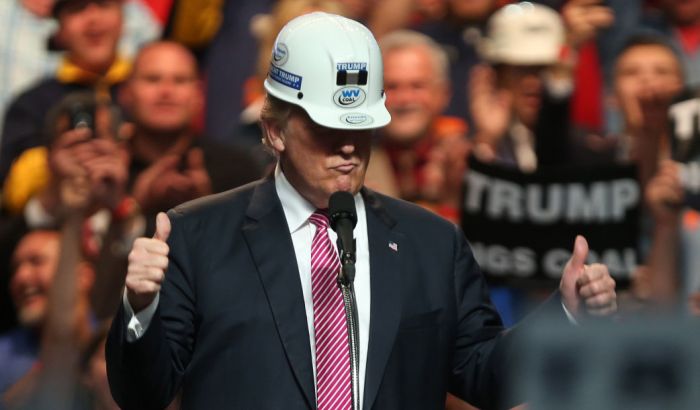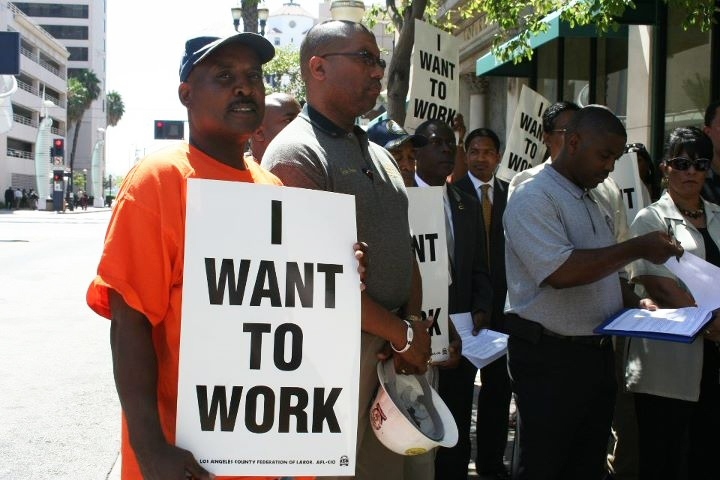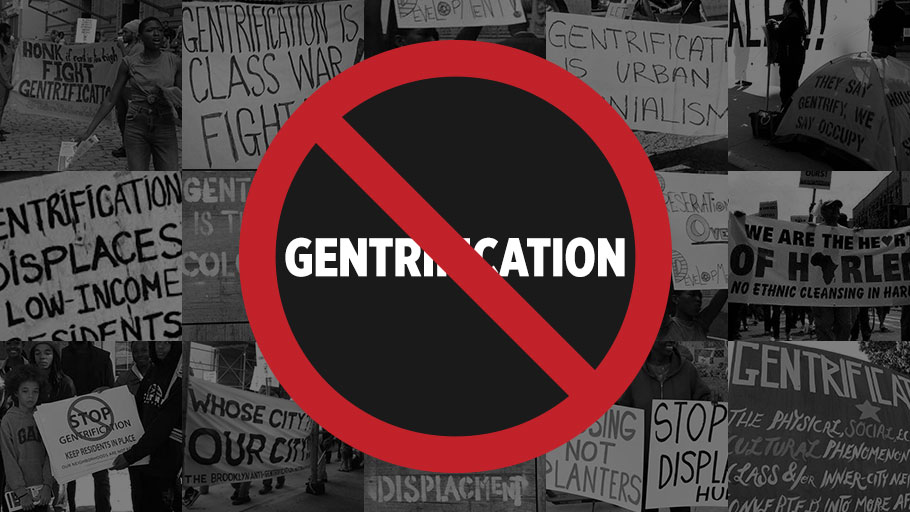How will Trumps infrastructure plan effect the black community and black workers?

A public beset by potholes, failing bridges and troubled
transit systems overwhelmingly has said in surveys that it supports the $2
Trillion infrastructure investment that President Trump and Senate leader Chuck
Schumer agreed upon last Tuesday, but Congress has yet to come up with a
funding solution.
“We agreed on a number, which was very, very good, $2
trillion for infrastructure,” Schumer said. “Originally we had started a little
lower; even the president was willing to push it up to $2 trillion. And that is
a very good thing.” Schumer told the press after his meeting at the White
House.
“It was a good, positive meeting,” said Peter A. DeFazio,
chairman of the House Transportation and Infrastructure Committee. “The
President spent a good time listening, and then he had things to say on his
own. It was pretty balanced. He responded to points that were made and made
points of his own. “
“I would say that 80 percent of it focused on infrastructure
writ large,” DeFazio said. “We agreed upon a broad figure of $2 trillion of
investment. Probably the largest chunk would go to roads, bridges, transit, but
we’re also going to do waste water, harbors, [and] probably include airports.
There was consensus on the need for universal broad band and some discussion of
a more efficient energy grid to transmit energy over longer distances. There
was some discussion of renewable energy, but no specifics on those.”
"The United States has not come even close to properly
investing in infrastructure for many years ... We have to invest in this
country's future and bring our infrastructure to a level better than it has
ever been before," a statement from
the White House press secretary read.
For Mr. Trump, an infrastructure deal would provide him with a bipartisan achievement he could point to while campaigning. But, Consistently, black activists, residents, and community groups identify displacement as a pressing concern. Anxieties about residential, cultural, and job displacement, are increasingly being caused by changes directly connected to gentrifying forces. These changes stem not just from individual action and market forces but also government intervention.
Gentrification is tied to historical patterns of residential
segregation, followed by the forces of gentrifying revitalization since the 1980s.
Government and public policies such as infrastructure investment have played a
key role in creating these patterns by directing public and private capital in
ways that advantage some and disadvantage other neighborhoods.
A recent study of Los Angeles and San Francisco analyzes
gentrification and displacement separately, finding that transit development’s
plays a significant role in gentrification. Although the vast majority of reporting
on transit infrastructure investment focus on the impacts of transit on real
estate value, a number of scholars are beginning to investigate the
relationship between transit investments and gentrification, with an implied
relationship to residential displacement.
Moreover, with transportation projects, and gentrification being a key issues in cities like Oakland, Los Angeles, and Philadelphia, black workers in these cities are also complaining about increased racial discrimination in the construction industry.

In Philadelphia for example, black members of Local 542, say
they have heard white supervisors throw around phrases like “worthless nigger”
on job sites, just like in the Old South. And in 2017, a black operator found a noose hanging from his crane while working at a
local power plant. In May, during the biannual general membership meeting of
Local 542, one black member seized the mic and proclaimed that he would no
longer tolerate racial epithets from the rank-and-file members of the union. “I
am not a monkey,” he said in part, according to those in attendance.
But truly how will this new infrastructure plan benefit black tradesmen and women, as well as black contractors? $2 Trillion is a huge sum of money, but will this infrastructure bill create true value for the black community in the form of well-paying jobs, and investment opportunities, is unclear given the historically racist reputation of the construction industry.
It's unclear whether or how Republicans and Democrats will
be able to find common ground on a funding source for a large infrastructure
package, something that has eluded them for years.
Despite the US context of growing income segregation, residential
and commercial gentrification is occurring in lower-income neighborhoods,
transforming the meaning of the neighborhood. And, although the displacement
discussion in the United States began with the role of the public sector and
now has returned to the same focus, it will be necessary for the black
community to overcome methodological shortcomings of disunity, and to come
together under one voice in order to effectively change the political landscape
surrounding government infrastructure investment as it relates to high-paying, skilled jobs, and gentrification.

